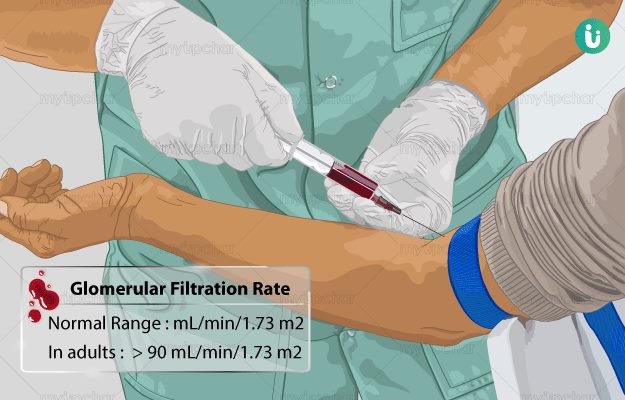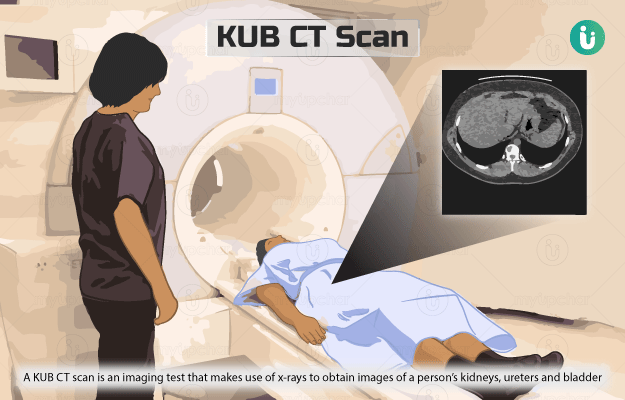What is Glomerular Filtration Rate (GFR) test?
A GFR test is also known as the estimated GFR (eGFR) test or calculated GFR (cGFR) test. It estimates the amount of blood which passes through the glomeruli - a group of blood capillaries present in the kidney - in a minute. Glomeruli filter out waste products from the blood and prevent the loss of essential nutrients like proteins. GFR test is mainly done to check how well your kidneys are functioning. It also helps to determine the stage of chronic kidney disease in patients.
An individual with healthy kidneys can filter about 189 litres of blood and produce approximately 1.9 litres of urine every day.
GFR depends on various factors such as:
- Age
- Race
- Gender
- Height
- Weight
GFR can be estimated directly or it can be calculated indirectly by estimating blood creatinine levels. Creatinine is a metabolite of creatine - an organic compound which supplies energy to the muscle. The former is only excreted by the kidneys and hence can be used to assess glomerular filtration rate.
If the kidney function is impaired, creatinine will not be excreted completely and gets accumulated in the blood. So by estimating the amount of creatinine excreted in the urine, GFR can be easily calculated.














